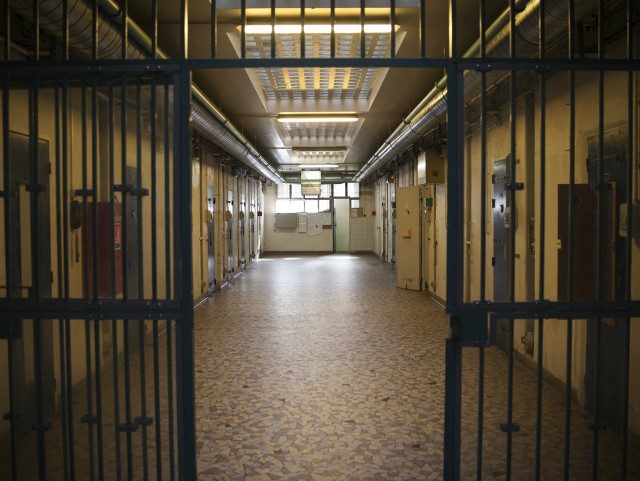A member of the U.S. Commission on Civil Rights warns that two prison reform bills currently being considered by the Senate will likely serve to return prisoners sooner to their neighborhoods — where it is probable they will resume their criminal activity.
In a letter sent to Sen. Charles Grassley (R-IA), chairman of the Senate Judiciary Committee, attorney Peter Kirsanow, a Republican member of the U.S. Commission on Civil Rights, says evidence indicates that, if signed into law, the most likely outcome of the FIRST STEP Act and Smarter Sentencing Act bills “is that individuals will be freed to commit crimes sooner than they otherwise would have.”
Kirsanow, who also chairs the board of directors of the Center for New Black Leadership, states there is no evidence that the concern that “black men are disproportionately likely to be incarcerated compared to white men” will be significantly ameliorated by these bills.
Kirsanow describes both bills, stating they are “predicated on the belief that rehabilitation is not merely possible, but probable”:
The FIRST STEP bill would allow prisoners to earn up to 15 days of time credits for every 30 days of participation in “evidence-based recidivism reduction programming or productive activities.” The Smarter Sentencing Act dramatically reduces sentences for drug offenses, for example by halving the minimum sentence for individuals who traffic in methamphetamines.
However, the civil rights commissioner observes the good intentions underlying both measures are flawed since evidence shows “releasing prisoners early and reducing sentences are unlikely to have the beneficial effects promised by these bills’ sponsors.”
Kirsanow states that although data indicate those who commit crimes are more likely to re-offend than those who are not criminals, the prison reform legislation “relies on the assumption that authorities can accurately assess which offenders are likely to desist from crime.”
He writes:
Rehabilitation is important, but it is only one purpose of incarceration. Incapacitation – that is, the inability to commit additional crimes – is another purpose of incarceration. Incapacitation is more effective than rehabilitation, because it works on everyone. Rehabilitation, at best, works on those who are motivated by wanting to change their lives.
Kirsanow asks the question that, while college degree programs for those incarcerated are of value to those who are motivated to reform their lives, “does a reduced likelihood of recidivism for those prisoners outweigh the danger of releasing other prisoners who had no interest in reform, but a great deal of interest in getting out of prison early?”
“It is true that black men are more likely to be incarcerated than white men, and that many advocacy organizations that purport to represent the interests of black people favor reduced sentences and early release,” he concludes. “But given the likelihood of recidivism, reducing incarceration means that black criminals will return to black neighborhoods like mine and resume their criminal careers. The government should favor the interests of the innocent over the interests of the guilty.”
The FIRST STEP Act was put forward by a bipartisan coalition in the House and received that body’s approval in May. The bill has the support of the White House via President Donald Trump’s adviser and son-in-law Jared Kushner, a proponent of prison reform.
As the Washington Free Beacon reported, the National Association of Assistant U.S. Attorneys (NAAUSA) has also called upon the Senate to reject the measure, stating the bill would allow dangerous criminals to return to neighborhoods without sufficient rehabilitation.
“The legislation is based upon state prison programs with track records less successful than current recidivism programs available to federal prisoners,” the letter said.
The NAAUSA also observed the bill would retroactively allow prisoners to collect “good time” credits on an expanded basis as a reward for good behavior, ultimately leading to early release. Some 4,000 federal prisoners are estimated to be released via this route.
“The release of such a significant number of federal prisoners, regardless of BOP [Bureau of Prisoners] security classification, could have serious consequences upon public safety,” the letter asserted.
“We urge the Senate to reject legislation that reduces federal sentences, whether indirectly through the FIRST STEP Act or more directly through the Sentencing Reform and Corrections Act, especially at a time when the nation is suffering rising violent crime and an opioid/heroin epidemic killing over sixty-thousand citizens a year,” the NAAUSA affirmed. “Our nation’s system of justice and our citizens deserve no less.”

COMMENTS
Please let us know if you're having issues with commenting.